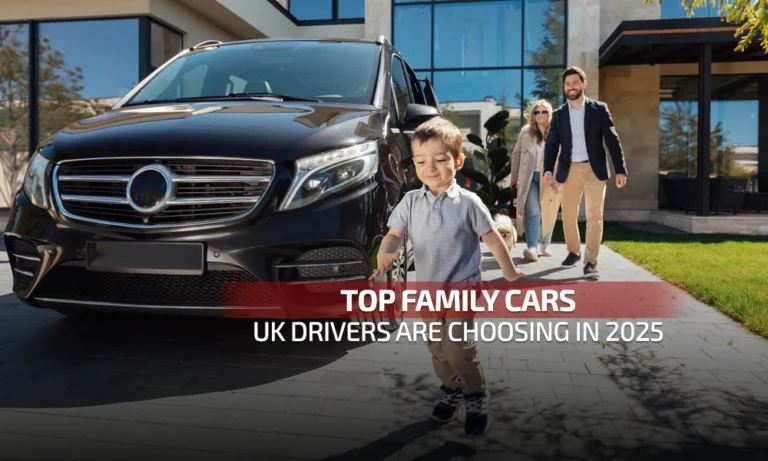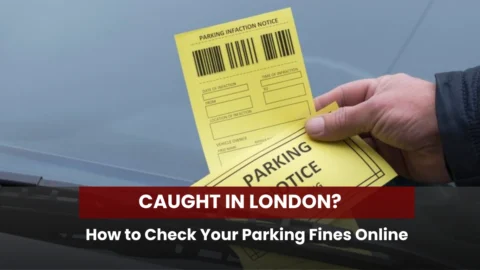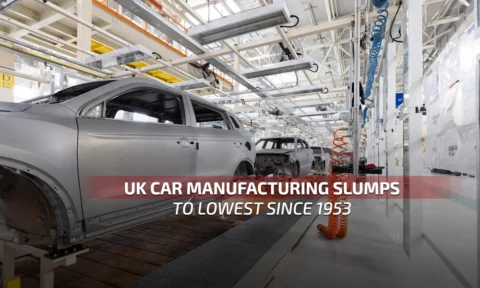Family car hunting in 2025 comes with more options than ever—from compact EVs to seven-seat hybrids.
But with living costs rising, UK drivers are zeroing in on cars that combine safety, space, efficiency, tech, and budget sense.
This guide seamlessly integrates what Carwow, Auto Express, RAC, and Parkers miss—so you get a fresh, no-fluff take on the best family cars UK drivers are really buying in 2025.
What Makes a Great Family Car in 2025?
- Roomy and practical: Whether it’s legs, luggage, or multiple seats—space is key.
- Multiple powertrain options: EVs, hybrids, PHEVs, and petrol—whatever works.
- Safety & driver tech: From lane assist to crash safety, no compromises.
- Running cost balance: Low maintenance, insurance, and fuel costs.
- Versatility: Scalability—large boots, modular seats, or towing ability.
The Top Contenders
Based on trends across Carwow and Autotrader lists, these are the vehicles UK families are choosing most:
1. Skoda Octavia Estate
A staple hatch with estate practicality. With up to 640L boot space, mild-hybrid efficiency (66mpg), and under-£30k entry—no wonder it tops charts.
2. Honda Civic
Surprisingly spacious and sporty, delivering ~56mpg, 415L boot, and agile urban handling. Still sticks around strong .
3. Kia Sportage
A mid-size hybrid SUV that’s easy to park and comfortable—with a 7-year warranty and ~580 L boot. Perfect balance of value and practicality .
4. Nissan Qashqai
The UK’s favourite compact SUV. Now with e-Power hybrid tech, excellent safety, and ~500L boot—ideal for families.
5. Toyota Yaris Cross / Puma
Small in footprint, big in practicality (~450L boot, hybrid), and perfect for city-to-motorway flexibility. The Puma ranks especially high in popularity.
6. Skoda Kodiaq / Hyundai Tucson
For extra space. The Kodiaq’s 7-seater with 910 L boot is built for big families, while Tucson blends SUV comfort with hybrid efficiency (~620 L boot).
7. Kia EV9
The electric seven-seater making waves. Nearly 350-mile range, cavernous interior, and family car of the year accolades—EV power meets practicality.
8. Volkswagen Estate
A modern electric tourer with up to 436 miles range and a vast, plush interior. For families ready to go electric in style.
What Others Miss (And Why It Matters)
- Hidden EV practicality: Carwow often groups EVs generically. We highlight big-ticket models like Kia EV9 and ID.7 that meet crucial family needs—range, seats, space.
- Versatility matters: Automatic or hybrid systems might suit mixed driving; guides often skip plug-in hybrid plus tailored finance options.
- Resale & warranty value: Kia’s 7-year warranty or Nissan’s strong residuals make Sportage and Qashqai stand out long-term.
- City-living twist: Small SUVs like Puma/Yaris Cross hit the sweet spot—compact, efficient, yet bootable.
- Electric range nuance: ID.7’s real-world range and cabin flexibility addresses concerns glance-past lists skim over.
What The Experts Recommend
- Think across your lifestyle: Trust petrol/hybrid SUVs for school-to-gym runs; go electric if you handle motorway commuting with home charging.
- Buy with warranty in focus: Residual value matters—think about service, warranty, and expected depreciation.
- Test drive with kids or gear: It’s easy to overlook rear space, boot usability, or seating comfort until you’re on the road.
- Check hidden costs: Insurance, road tax, charging infrastructure (if EV), and servicing should all align with the car type.
Yes—if you have home charging. The Kia EV9 offers space for 7, up to 350 miles of range, and loads of cabin tech. For families who do mostly city driving with occasional road trips, it’s one of the most capable EVs on the market. Just make sure your lifestyle supports charging at home or at work—public charging isn’t as seamless yet.
Hybrid SUVs (like the Hyundai Tucson) are great for mixed driving and offer better visibility and space. But petrol estates (like the Skoda Octavia) often deliver better fuel efficiency and ride comfort, especially on long journeys. If you do more motorway miles, the estate might quietly be the smarter choice.
Yes. The Skoda Kodiaq, Peugeot 5008, and even the electric Citroën e-Berlingo XL are all strong options under £40k. They offer flexible seating, big boots, and enough tech to keep families comfortable—without breaking the bank.
Look for SUVs or taller hatchbacks with wide-opening rear doors and flat boot lips. The Kia Sportage and Hyundai Tucson stand out here. Rear seat height and Isofix access can make a big difference when loading kids in and out every day.
Think about tyre wear, insurance group, servicing schedule, and how well the car holds its value. A car like the Kia Sportage may be more expensive upfront but can save you more over time thanks to its 7-year warranty and slower depreciation.
Final Word
In 2025, families in the UK aren’t just buying cars—they’re choosing confidence, comfort, and cost efficiency.
Whether it’s compact hybrid hatchbacks for town-living, roomy SUVs for weekends, or full EV solutions for future-thinking homeowners—the winners tick real-life boxes beyond just “top ten” lists.Families who test with purpose, buy sensibly, and look at total cost are the ones driving home with cars that actually work for them.







